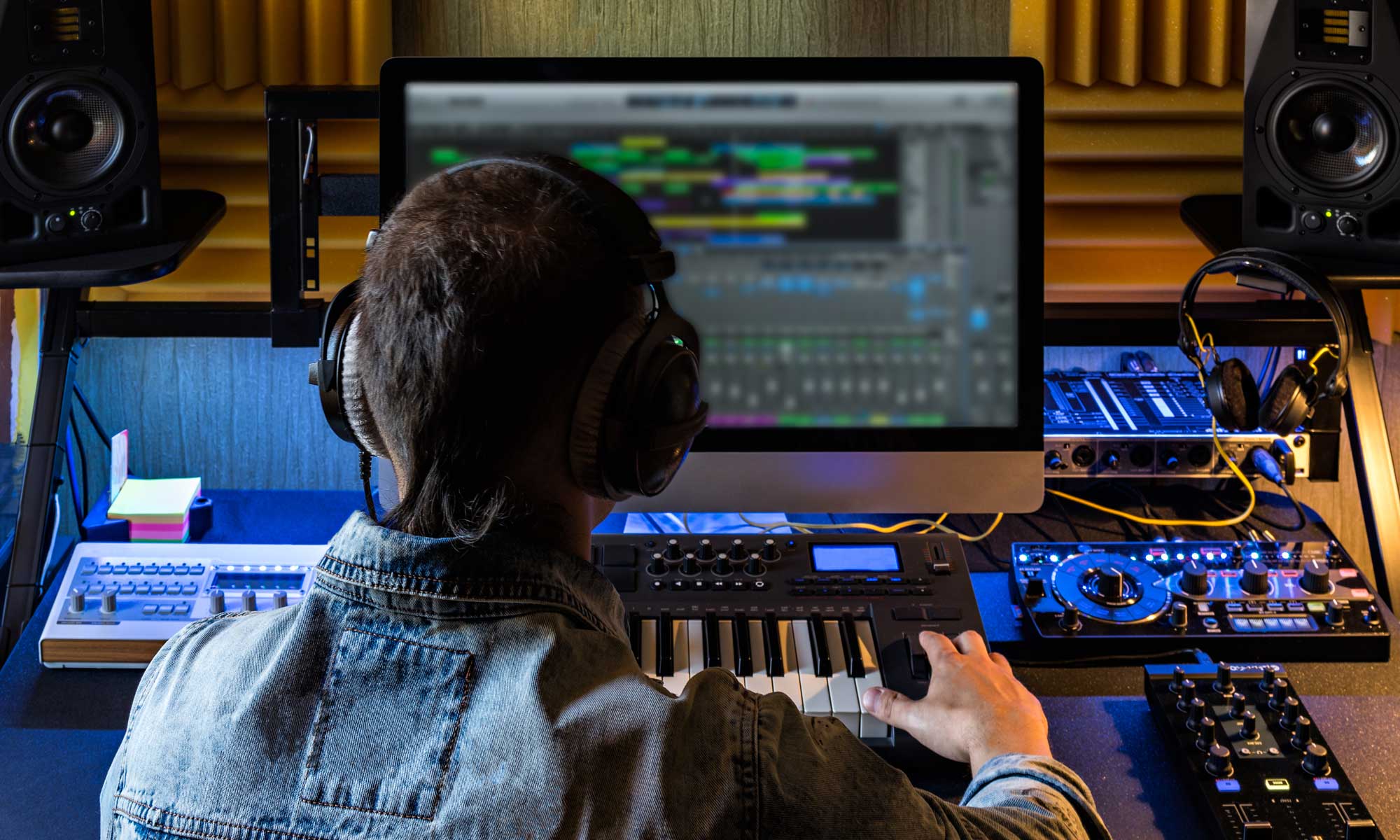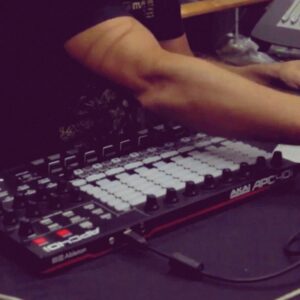ELECTRONIC MUSIC PRODUCTION
With ABLETON LIVE
Electronic music production is the creation of music using electronic instruments, digital tools, and technology based on circuits. It offers a distinct sound that sets it apart from music produced using electromechanical means.
Electronic music production course designed to help students specialise in music production. By joining this course, you will learn how to create high-quality music and achieve professional-level sound mixing. The course begins with an understanding of the nature of sound.
Our music production course is designed to help you develop the skills needed to produce your own tracks. You will learn to avoid common mistakes and gain numerous ideas for creating new tracks. This course is beneficial for beginners as well as those seeking advanced knowledge and techniques. We have successfully trained many students who are now well-placed in the industry.
Our music production course focuses on recreating and redesigning sounds using synthesisers. You will also learn how to start and finish tracks efficiently. The course will cover sound mixing techniques that give your music a professional touch and captivate the audience.
COURSE DURATION
The course duration is 3 months, with classes held thrice a week for 90 minutes per session. Additional classes may be provided if the faculty feels that more time is required for a thorough understanding of the concepts.
PREVIOUS KNOWLEDGE
No prior knowledge or qualifications are required to learn the art of music production. However, if you have any previous knowledge, it will aid in grasping the concepts more easily.
COURSE STRUCTURE
1: The Interface & The Basics
• Navigating Ableton Live’s two views: Arrangement View and Session View
• Overview of the new features in Live 10
• Understanding Info View, Help View, and the learning process in Ableton Live
• Working with the Clip Slot Grid
• Understanding Live’s signal flow
2: Recording & Warping
• Recording audio and MIDI
• Recording to the Arrangement
• Editing audio and MIDI
• Automation techniques
• Exploring the Groove Pool
• Full track deconstructions
• Hardware setup for recording
• Microphone types, placement, and audio interface needs
• MIDI hardware setup and recording
3: Editing & Producing
• Looping and using locators
• Key mapping
• Reversing clips
• Time signature and meter changes in session and arrangement views
• Adding harmony and working with vocal samples
• Creating beats and working with one-shots
• Slice to MIDI for beat production
• Utilising drum racks
• Consolidating tracks
• Recording and writing drum grooves
• Layering synths
• Freezing and flattening tracks
• Applying audio effects and automating them
• Side-chaining
• Routing and bussing
• Resampling techniques
4. Sound Design and Samplers:
• Synthesis basics and types of synthesis
• Exploring Live’s instruments: Analog, Collision, Electric, Impulse, Tension, Operator, Simpler, and Sampler
• Multi-samples and zones in samplers
• Working with sampler orchestras
5: Audio and MIDI Effects
• Introduction to racks and their uses
• Instrument racks and chain selectors
• Using macros in racks
• Exploring drum racks and choke settings
• Understanding the External Instrument device
• Overview of MIDI effects
• Working with MIDI effects like Arpeggiator, Chord MIDI Effect, and MIDI Effect Racks
• Manipulating note length, pitch, randomness, scale, and velocity using MIDI effects
• Overview of audio effects
• Exploring all Ableton audio effects and their functions, including Simple Delay, Ping Pong Delay, Filter Delay, Grain Delay, Chorus, Flanger, Reverb, Beat Repeat, Looper, EQ Three, EQ Eight, Auto Filter, Amp, Cabinet, Corpus, Dynamic Tube, Erosion, Frequency Shifter, Overdrive, Phaser, Redux, Resonator, Saturator, Vocoder, Compressor, Glue Compressor, Limiter, Multi-band Dynamics, Gate, Auto Pan, External Audio Effect, Vinyl Distortion, Spectrum, Tuner, and Utility
• Understanding audio effect racks and using presets
• Building custom effect racks
• Exploring parallel processing techniques
• Applying Fade To Grey effect
• Introduction to performance racks
6: Controllers
• Overview of controllers
• MIDI mapping and assigning controllers
• Exploring the Ableton Push interface
• Understanding the APC40 interface
• Working with follow actions, legato mode, and launch modes
• Launching clips in performance mode
• Setting up effects for live performances
• Utilising the crossfader
• Mapping controllers for live performances
By completing the music production course, you will gain the necessary skills and knowledge to produce professional-quality electronic music. Whether you are a beginner or have prior experience, this course will enhance your music production abilities and help you excel in the industry. Join us and embark on a journey to create captivating EDM tracks and perform live with confidence.




Reviews
There are no reviews yet.